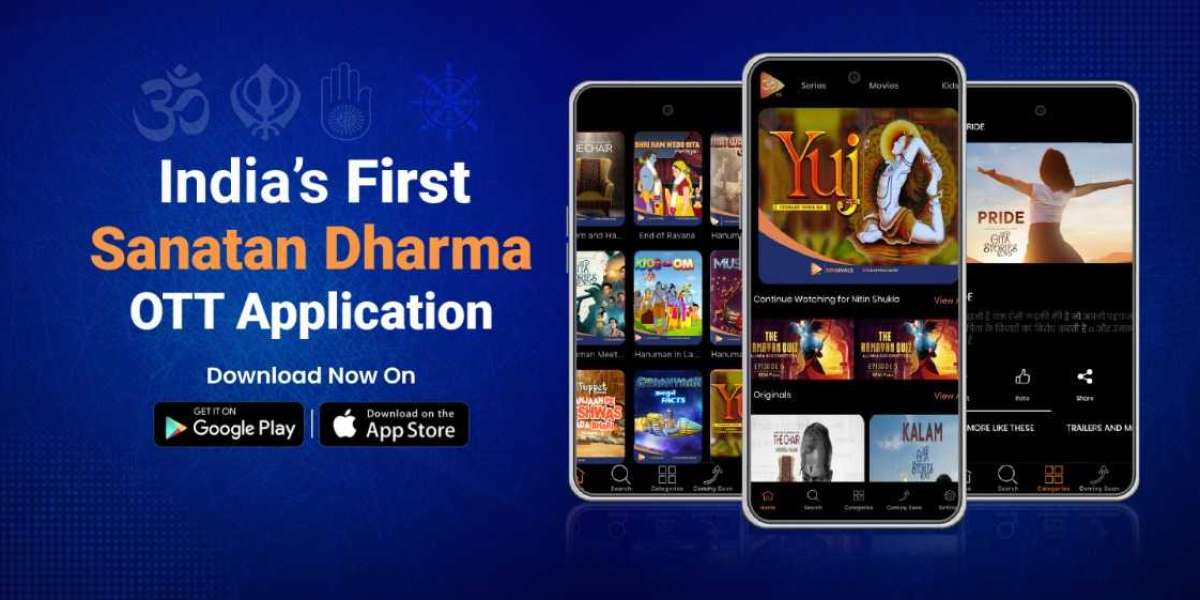India is known for its rich cultural heritage and diversity, especially in terms of religious practices. Indian religions, which include Hinduism, Buddhism, Jainism, and Sikhism, have significantly influenced the spiritual landscape not only in India but around the world. These religions are deeply rooted in ancient traditions, philosophies, and teachings. In this blog, we will explore the essence of Indian religions and how Omtvlive, a dedicated platform, helps people understand and connect with these profound traditions.
Understanding Indian Religions
Indian religions are characterized by their deep philosophical insights, spiritual practices, and cultural rituals. Each religion offers unique perspectives on life, the universe, and the human experience. Here’s a closer look at the four major Indian religions:
Hinduism
Hinduism is one of the oldest religions in the world, dating back over 4,000 years. It is a complex and diverse religion with no single founder. The sacred texts of Hinduism include the Vedas, Upanishads, Bhagavad Gita, and Ramayana. Hindus believe in concepts such as karma (the law of cause and effect), dharma (duty and righteousness), and moksha (liberation from the cycle of rebirth). Worship of multiple deities and the practice of rituals and festivals are integral to Hindu life.
Buddhism
Buddhism was founded by Siddhartha Gautama, known as the Buddha, in the 6th century BCE. It focuses on the Four Noble Truths and the Eightfold Path, which guide individuals to overcome suffering and achieve Nirvana, a state of ultimate enlightenment. Buddhism emphasizes meditation, mindfulness, ethical conduct, and wisdom. It has various branches, including Theravada, Mahayana, and Vajrayana.
Jainism
Jainism, established by Mahavira in the 6th century BCE, teaches the importance of non-violence (ahimsa), truth (satya), and asceticism. Jains believe in the eternal nature of the soul and strive for liberation (moksha) through self-discipline and renunciation. Jain practices include strict vegetarianism and non-attachment to material possessions. The Tirthankaras, spiritual teachers, are highly revered in Jainism.
Sikhism
Sikhism, founded by Guru Nanak in the 15th century CE, emphasizes the belief in one God, equality of all humans, and the importance of living a truthful, honest life. The central scripture of Sikhism is the Guru Granth Sahib. Sikhs follow the teachings of the ten Gurus and strive to live by the principles of service, humility, and devotion to God. The Golden Temple in Amritsar is a significant pilgrimage site for Sikhs.
Omtvlive: Connecting People to Indian Religions
Omtvlive is a platform that aims to spread awareness and understanding of Indian religions. Through various multimedia content, educational resources, and community engagement, Omtvlive provides a comprehensive guide to these ancient traditions. Here’s how Omtvlive is making a difference:
Educational Resources
Omtvlive offers a wealth of educational materials, including articles, videos, and podcasts, to help people learn about Indian religions. Whether you are new to these religions or looking to deepen your knowledge, Omtvlive has something for everyone. These resources cover the history, philosophy, rituals, and practices of Hinduism, Buddhism, Jainism, and Sikhism.
Community Engagement
One of the unique aspects of Omtvlive is its focus on building a global community. Through online forums, social media groups, and live events, Omtvlive connects people from different backgrounds who share an interest in Indian religions. This sense of community helps individuals find support, share experiences, and deepen their understanding of their faith.
Interactive Learning
Omtvlive’s interactive learning modules make studying Indian religions engaging and accessible. From virtual tours of sacred sites to interactive quizzes on religious texts, Omtvlive uses technology to bring these ancient traditions to life. This approach not only educates but also inspires users to explore their spiritual paths more deeply.
Celebrating Festivals
Omtvlive plays a significant role in celebrating and explaining the importance of various festivals associated with Indian religions. From Diwali and Holi in Hinduism to Vesak in Buddhism, Mahavir Jayanti in Jainism, and Guru Nanak Gurpurab in Sikhism, Omtvlive provides insights into the history, significance, and customs of these festivals, helping people appreciate their cultural and spiritual importance.
The Core Teachings of Indian Religions
Understanding the core teachings of Indian religions can provide a clearer picture of their essence. Here are some fundamental concepts:
Dharma
Dharma, a key concept in all Indian religions, refers to the moral and ethical duties that govern individual behavior. It emphasizes living in accordance with the natural order and fulfilling one’s responsibilities towards oneself, family, society, and the universe.
Karma
Karma is the law of cause and effect, where every action has consequences. Good actions lead to positive outcomes, while bad actions result in suffering. This principle encourages individuals to act ethically and responsibly.
Reincarnation and Liberation
The belief in reincarnation is central to Indian religions. The cycle of birth, death, and rebirth continues until one achieves liberation (moksha or Nirvana). Liberation is the ultimate goal, representing freedom from the cycle of suffering and union with the divine or a state of perfect enlightenment.
Meditation and Self-Discipline
Meditation and self-discipline are crucial practices in Indian religions. These practices help individuals cultivate inner peace, self-awareness, and spiritual growth. They are seen as essential steps towards achieving enlightenment and liberation.
Conclusion
Indian religions offer profound insights into the nature of existence, the importance of ethical living, and the path to spiritual enlightenment. Through platforms like Omtvlive, these ancient traditions are made accessible to a global audience, fostering understanding and appreciation. By exploring the teachings and practices of Hinduism, Buddhism, Jainism, and Sikhism, individuals can find guidance and inspiration on their spiritual journeys. Omtvlive serves as a bridge, connecting people to the rich heritage of Indian religions and helping them navigate their paths with wisdom and compassion.









